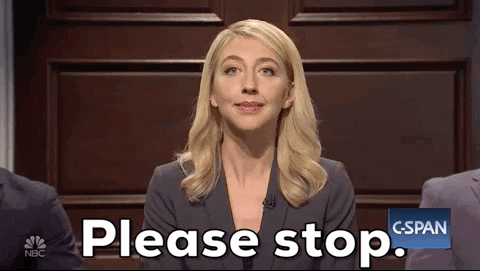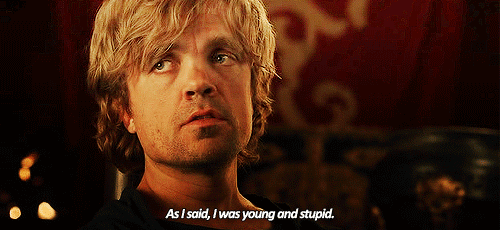More Chatbots, WeWork & Omegle
5 in 5 - Brave & Heart HeartBeat #179 ❤️
This week another unfunny tech guy brings us their version of a chatbot with humour, WeWork and Omegle are both pronounced dead, and Katie Hopkins is unfortunately back on Twitter (X).
Plus, why are some brands snubbing Black Friday?
Let's get into it.
Were you forwarded this? Not a subscriber? 👉 Sign up here
#1 - More AI Chatbots We Don’t Need…
This time, the Elon Musk edition.
We’ve already had Meta’s offering, who apparently think we need to talk chatbots with the personalities of celebs who famously have no personality (Kendall Jenner and Tom Brady being the most offensive), and now Elon Musk has gotten in on it.
In classic Elon Musk style, i.e. the worst type of man in the world, he thought the world couldn’t possibly keep turning without the gift of a chatbot from his own fair hands, boasting humour and edginess that we couldn’t possibly find anywhere else.
The bot is called GrokAI, a niche sci-fi reference, and Musk sincerely stated that they worked very hard to ensure it was funny, not woke, and the best ever. The funny, not woke-ness he’s referring to must be the fact that it throws in phrases like “buckle up, buttercup” before recounting information and can roast public figures if you ask it to. Edgy.
Vice magazine have described it as the pinnacle of boomer cringe, which is hilarious, and accurate. What we find most pathetic about the situation though, is the timeline of Musk’s relationship with AI.
If you had forgotten, Musk co-founded OpenAI, THE AI company that brought the explosion to life last year with ChatGPT. However, he left the company before that huge success, apparently due to his other companies getting in the way, although sources have said it was due to him wanting to be the one in charge…
Since then, Musk has spent a lot of time scaremongering about AI and how it’s going to end society as we know it. Something recently led him to change his mind however, and while he’s apparently working on an AI which will reveal all the secrets of the universe, the only concrete thing he’s bringing us is an unfunny funny chat bot? Wow, you shouldn’t have.
There’s also the small question of the fact that this AI bot will be running on data mined from X, (you know, Twitter). Is that actually allowed? The jury’s out to be honest, so watch this space.
#2 - WeWork Is Dead
It’s official, WeWork has filed for bankruptcy.
Back in 2010 when WeWork was founded by “Svengali” style CEO Adam Neumann, the time was perfect for an empty promise of a business to hit big. There was office space going begging following a financial crisis, a load of laid off workers looking for a way to rebuild their careers, and rock bottom interest rates to fund rapid business expansion.
The biggest factor to WeWork’s short term success, however, was probably the combination of Neumann himself, and a huge dose of FOMO from investors who were so terrified of missing out on the next Amazon, Google or Facebook that they were ready to pay almost anything to sponsor the next charismatic Steve Jobs type.
People often cite Covid as the reason for WeWork’s downfall, but the reality is that his business model and organisation was simply flawed – cracks had begun to show as early as 2017, when the Wall Street Journal described the company as being "fuelled by Silicon Valley pixie dust” and people finally started asking awkward questions - like why is a company that sublet office space being valued like a technology company.
Even back when Neumann was paying extortionate rates to rap stars to headline the company party, WeWork were losing $200,000 an hour, and while Neumann walked out intact, the company is now only worth one thousandth of its peak value at a measly 50 million.
We have our own issues with WeWork, and while trying to find solutions for our own staff to work in offices a few times a week (we’ve always been a remote company, even since before the pandemic) we picked a huge flaw with their system – they’re centralised in capital cities.
WeWork could have reinvented themselves post pandemic, plenty of people are currently working remotely and would be happy for a change scenery from their home office. We want to spend money on their solution, but we can’t. Why? Well, we’re based all over the UK, and while they have almost 40 locations in London, they barely have ANY anywhere else.
One of the benefits of remote working now is that people don’t have to live in capital cities, so what’s the point in centralising all the remote work solutions there? It’s time to look outside the capital, and although nothing could have saved WeWork, someone should snap that idea up.
#3 - Omegle Is Also, Finally, Dead
If you don’t know what Omegle is, you’re one of the lucky ones. If you do, you’re probably wonder why it took so long to close down.
Let us introduce you to the concept – a video chat where you’re randomly paired with another anonymous user from anywhere across the globe. What could go wrong? Yeah, obviously, a lot.
Omegle’s closure has a lot to do with the landmark case of a young American woman who accuses the site of randomly pairing her with a paedophile, who then went on to become her abuser via the internet.
The service was launched in 2009 when founder, Leif Brooks was 18, and was very popular for teens messing around in the age of MSN and MySpace, coming back into fashion during the pandemic for obvious reasons. And, in the past few years, the site has been mentioned in over 50 cases against paedophiles. Colour us not surprised.
When announcing the sites closure, Brooks said that operating the site is no longer financially or psychologically sustainable for him, noting that the closure is also to do with him wanting to avoid a heart attack before he’s 30.
He originally waxed lyrical about the site’s vision of bringing people together with "the idea of 'meeting new people' distilled down to almost its platonic ideal", and it’s safe because it’s online and not in real life.
Little did we know back in 2009, the internet isn’t safe at all.
#4 - Katie Hopkins Is Back
And worse than ever. Probably.
Yes that’s right, after being banned from the platform back when it was Twitter and there were actually safeguarding rules in place to avoid the spread of hate speech, Katie Hopkins, international hate speaker who rose to fame after appearing on the Apprentice (lest we forget) and having sex in a field (yuck) has been reinstated to the platform.
She thanked Elon Musk personally, in a message shared on the platform, and congratulated users for fighting to bring herself and convicted criminal/anti-Islam activist Tommy Robinson back to the platform.
Banned back in 2020 for violating Twitter’s hateful conduct policy, she is one of thousands of users who have been allowed back onto the platform. Not because they’ve changed their ways, mind you. Research from the BBC found that of the 1,100 reinstated accounts it examined, nearly 190 are currently promoting hate and violence.
It’s not a surprise, considering Elon Musk’s obsession with free speech. The mantra that’s been given by Musk and X is “freedom of speech, not reach” – meaning that while they want everyone to be able to share whatever horrible thing pops into their head, they will limit the reach of offensive or misleading posts.
In practise though, this isn’t the case. Many of the accounts prone to spreading misinformation and hate have access to X Premium, and for premium subscribers the platform will boost their posts in the algorithm.
We’re sure something terrible will happen, it’s only a matter of time. Any billionaires fancy buying X for double what Musk paid for it, for the greater good of society? Anyone?
#5 - Black Friday? No Thanks
It’s that time again, Black Friday is just around the corner…
However, more retailers are choosing to snub the sales.
For some, it’s an environmental issue. Outdoor wear retailer REI don’t open any of their stores, preferring instead to give their employees paid holidays (for those of us who aren’t American, remember, Black Friday is after Thanksgiving).
Everlane used to shut down their website in protest, but now they donate money to a variety of causes via their “Black Friday Fund”.
Last year, Ikea launched a “Green Friday” campaign where they doubled store credits for customers who sold their old Ikea furniture back to them. And Patagonia, who famously gave away their company to save the environment, shun Black Friday with a page on their site detailing why it’s against their values and directing the customer to charity options.
It’s not always done out of the good of their hearts however, as brands announcing they’re opting out of Black Friday gives them a kind of cachet – they’re different, and they’re not chasing profit. In a way, brands that opt out of Black Friday are also playing hard to get, and making themselves more valuable in the process.
Luxury brands, for example, often don’t partake in Black Friday either. This not only keeps up their brand value, it makes sense for their consumers. A purchase made at Tiffany, for example, is usually something that’s been planned and considered – a flash sale isn’t going to lure in many impulse buyers. If you’re impulse buying something at Tiffany, you’re not looking at the price tag…
As a consumer, will you be partaking in this year’s Black Friday, or is it time for a boycott?
Brave & Heart over and out.
Bonus
Happy Anniversary ChatGPT
It’s officially been a year since OpenAI opened pandora’s box with ChatGPT.
From making AI the buzz term for all brands to add on to anything from predictive text to chat bot technology, to terrifying all of our grandmas.
What a year it’s been! Let’s see what the next one will bring…
To find out more on how you can retain your top talent, or how we can help you with digital solutions to your business and marketing challenges, check out our case studies.



